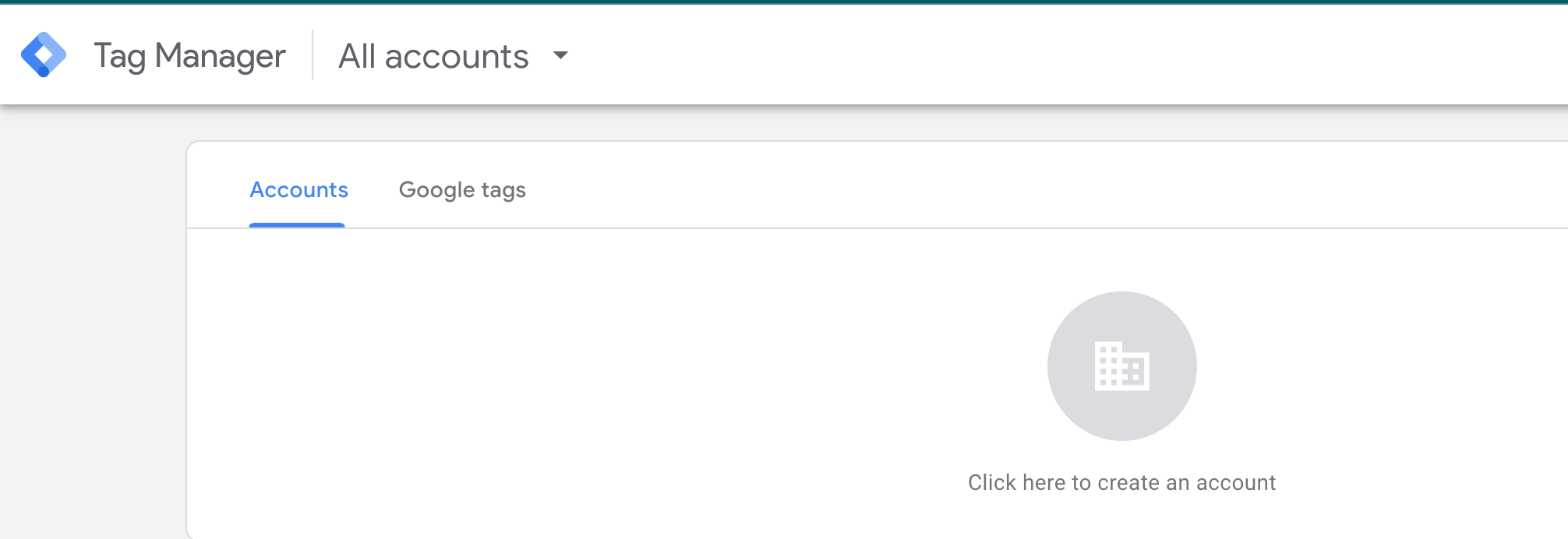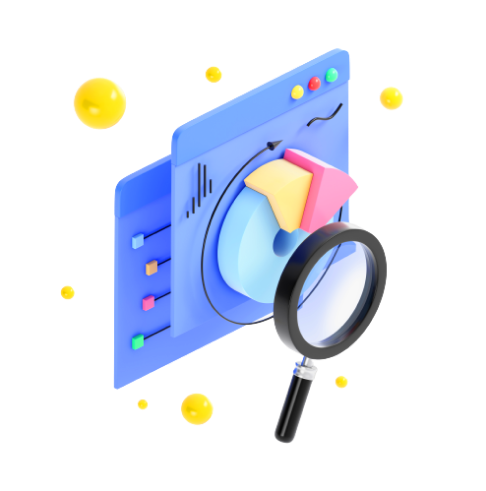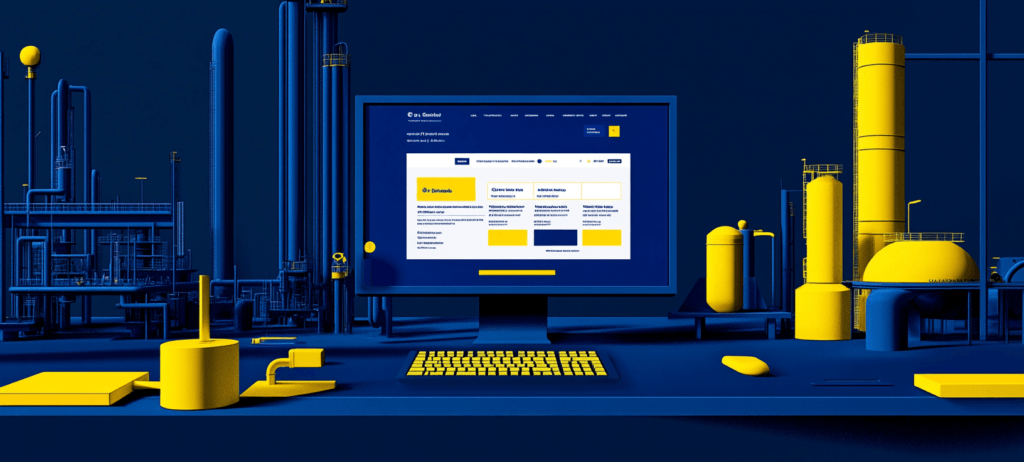-
 Published: Aug 29, 2023
Published: Aug 29, 2023
-
 13 min. read
13 min. read
-
 Sarah Berry
Sarah Berry Lead Web Marketing Consultant
Lead Web Marketing Consultant
- Sarah Berry is a Lead Web Marketing Consultant at WebFX. With more than 10,000 hours of experience, she offers practical insights and strategies you can use to grow your digital revenue. When she isn’t polishing her Time Magazine Person of the Year Award, she’s spending time with her flock of ducks.
What is martech?
Martech is software that powers and improves marketing processes. It is also referred to as marketing technology.
While some may call it a buzzword, the growing prevalence of marketing technology, or martech, is making the term an everyday phrase at marketing agencies that specialize in digital marketing.
Keep reading to learn the martech definition and its pivotal role in digital marketing! Here’s quick overview of everything we’ll cover on this page:
- What is martech?
- What is a martech stack?
- What are martech companies and what do they do?
- Martech vs. adtech: What’s the difference?
- 9 fundamental martech applications
- 7 reasons martech matters to digital marketing
Our digital marketing campaigns impact the metrics that improve your bottom line.
See Our Approach
$10 billion

24 million

7.14 million
What is martech?
Martech is software that powers and improves marketing tasks. It generally refers to online marketing, as marketing technology can help build, manage, deliver, and optimize internet marketing campaigns.
What is a martech stack?
Companies often have a martech stack, which refers to a series of marketing technologies that manage a single channel or task. A stack can contain up to 10 technologies — also called point solutions.
What are martech companies and what do they do?
An alternative to a martech stack is an all-in-one marketing cloud. Due to the depth of some martech applications, many businesses partner with a marketing technology company — there are almost 4,000 providers of martech services. A marketing technology company will follow a software-as-a-service (SaaS) business model.
Some examples of martech companies include:
- HootSuite
- Salesforce
- Oracle
- Hubspot
- Buffer
As a result, tons of businesses use martech — and may not even realize it!
Martech vs. adtech: What’s the difference?
When learning about martech, you might hear the term “adtech” thrown around with it. While it may seem like these two are the same, there are some distinct differences between the two.
Here are three big differences between martech and adtech:
1. What they’re used for
The biggest difference between martech and adtech is their use case.
Martech encompasses technology for numerous marketing strategies. You can include software for managing ads, managing customer relationships, and more. Martech is an umbrella term that can encompass any software you use to manage your marketing strategies.
Adtech, on the other hand, focuses solely on technology used for running ads. Advertisers use this technology to help them create and run advertising campaigns, as well as monitor their performance.
2. Data they use
Another significant difference between the two types of technology is the data they use.
Martech uses first-party data that you collect. This technology will use data collected from your campaigns to help you better understand your audience and how they interact with your business. You can then use these insights to power your marketing decisions.
Adtech, on the other hand, uses third-party data. It relies on other data to make your advertising decisions and guide you towards success.
3. Billing
The last difference we’ll cover is billing. Martech and adtech bill you differently when you use their products.
Martech typically operates as a subscription-based product. You’ll pay a monthly fee to use their technology. They may include additional monthly charges for extra features.
Adtech platforms typically operate on a commission-based structure. These tools may require a minimum you have to spend and charge you when you earn clicks and sales from your ads.
9 fundamental martech applications
Now that you know the answer to the question, “what is martech,” let’s dive into some essential martech tools.
For a better perspective on martech and its value, let’s look at nine core martech applications:
- Content management system (CMS)
- Customer relationship management (CRM)
- Data management platform (DMP)
- Tag management
- Account-based marketing (ABM)
- Customer data platform (CDP)
- Marketing performance management (MPM)
- Search engine optimization (SEO)
- Email marketing
1. Content management system (CMS)
A Content Management System (CMS) is a critical part of every company’s operations, as it hosts website data. One of the most well-known CMS platforms is WordPress, an excellent tool for managing and maintaining a company blog.

2. Customer relationship management (CRM)
A customer relationship management (CRM) is a core part of your day-to-day operations, as it streamlines your client management. Salesforce is a program synonymous with CRM. It lets you organize, automate, and sync your company’s sales, support, and marketing actions.

3. Data management platform (DMP)
Many businesses use a Data Management Platform (DMP), especially if they’re looking to make company data available to an entire team or department. Adobe, for example, provides a DMP through its cloud services.
4. Tag management
A tag management application focuses on streamlining online marketing analytics, which you can use for influencing your remarketing efforts. Most applications rely on a JavaScript code, which you can add to your website. The most popular option is Google Tag Manager.

5. Account-based marketing (ABM)
An Account-Based Marketing (ABM) platform allows users to track engagement rates among quality leads. It also provides valuable analytics, which teams can then use to modify marketing campaign messages. InsideView, as well as Demandbase, are go-to choices for ABM applications.
6. Customer data platform (CDP)
Customer data platforms (CDPs) collect data on customers to give you a complete view of your customers beyond the sales cycle. These platforms help you get a clearer picture of your audience, so you can deliver marketing materials most relevant to them.
7. Marketing performance management (MPM)
Marketing performance management (MPM) software helps companies analyze the success of their marketing. These platforms can analyze marketing data, make predictions, and optimize marketing strategies to improve performance.
8. Search engine optimization (SEO)
Search engine optimization (SEO) involves numerous moving parts, but martech software can help manage the strategy. With martech, you can track your rankings, identify new keywords, and check backlinks.
9. Email marketing
Martech can help you manage your email marketing strategy. Martech helps you automatically send emails, like welcome, promotional, and abandoned cart reminder emails. You can also use martech to help you monitor your email performance and make improvements.
Measuring the metrics that affect your bottom line.
Are you interested in custom reporting that is specific to your unique business needs? Powered by RevenueCloudFX, WebFX creates custom reports based on the metrics that matter most to your company.
- Leads
- Transactions
- Calls
- Revenue


7 reasons martech matters to digital marketing
With brands spending more than 15 percent of their budget on martech, it’s clear that marketing technology does offer value to companies.
In fact, companies expect to boost their martech budget by 10 percent in the coming year (and that’s a digital marketing fact!), emphasizing its long-term role and value. Martech also continues to drive new trends in the marketing world. Here are seven reasons why martech matters to digital marketing:
- Gain audience insights
- Automate processes
- Increase productivity
- Enhance competitiveness
- Deliver personalized results
- Provide actionable data
- Improve online marketing results
1. Gain audience insights
In business, your audience matters. It’s critical that you understand what motivates their purchase decisions, as well as what they want in a product or service. By understanding their needs and desires, plus pain points, you can position yourself as their ideal provider.
Learning about your audience can take time, however. If you lead an email marketing campaign, for instance, it will take weeks to gather and analyze the data without the assistance of a martech tool, such as EmailMarketingFX. With EmailMarketingFX, for example, you get streamlined reports that share the following:
- Open rates
- Click rates
- Unsubscribe rates
- Individual subscriber activity
With the appropriate marketing technology, you can assess your audience and their behavior faster. That can lead to result-driving changes in your marketing campaign, such as by modifying the call-to-action (CTA) of your email newsletter.
2. Automate processes
Every industry, from manufacturing to marketing, relies on automation. By streamlining and automating time-intensive processes, you can maximize the time and effort of your team. That can lead to improved productivity, as well as faster responses to time-sensitive tasks.
As an example, you can use marketing technology to expedite the time it takes to review the results from your A/B tests. Instead of spending hours tallying and organizing the results into actionable data, you can utilize a program to do it for you.
Another way to demonstrate the value of martech comes from CallTrackerFX. This marketing technology provides real-time analytics about phone calls generated from your online marketing campaign. With this tool, you can automate — and improve the accuracy — of a process that would require hours.
3. Increase productivity
Like many technologies in the workplace, martech applications help improve the productivity of team members. By streamlining data and document access, as well as data gathering, your company can focus on reviewing and analyzing that data for action.
If you’re developing a content marketing campaign, for instance, it’s essential that your team can access the documents during normal working hours — and outside of work, if necessary. With a Data Management Platform, you can ensure everyone has immediate file access, eliminating project delays.
4. Enhance competitiveness
It’s essential to remain competitive in your market. By incorporating marketing technology into your business plan, you can maximize your unique selling points (USPs) and ensure you’re keeping up-to-date on market trends. The additional benefits of martech also improve your competitiveness.
By automating your processes — which can improve your productivity, marketing campaigns, and results — you’re becoming a better-known choice for consumers.
If you’re launching a lead generation campaign, for example, and your team doesn’t have an ABM, that prevents you from earning real-time data about engagement rates. Without that data, you can’t create a smart action plan, but your competitor can if they’re relying on martech.
With RevenueCloudFX, for instance, you have access to a suite of marketing technologies. These martech tools, which range from call tracking to email marketing, inform your current and future marketing efforts by providing insight on your visitors and leads. The best part is that RevenueCloudFX offers an integrated versus siloed solution.
5. Deliver personalized results
Personalization is a core feature of marketing. In fact, when it comes to email marketing, personalization can improve open rates by more than 40 percent — in addition, it can bump up conversions by 10 percent. Without marketing technologies, it’s an immense challenge to offer personalization. While you can thank clients that call your team, visit your store, or request your assistance, it’s hard to offer that experience to the leads you’re looking to convert.
That’s not the case with marketing technologies. With applications like RevenueCloudFX and EmailMarketingFX, you can personalize your marketing efforts to existing and future clients, which can increase engagement and conversion rates — and that leads to more revenue. In most cases, such as with RevenueCloudFX, you can automatically personalize your content.
6. Provide actionable data
Without marketing technologies, it’s a time-consuming and research-intensive process to develop an actionable, data-driven plan, such as for modifying the language or target audience of a social media marketing campaign. With martech, however, you can automate that process.
The result is the quick delivery of actionable data. The rate at which you receive this data can help you respond fast to changes in the marketplace, such as the discovery of a high-value, low cost-per-click (CPC) keyword for your pay-per-click (PPC) campaign.
7. Improve online marketing results
For many businesses, the biggest benefit of martech are the results. By streamlining processes, from data collection to data analysis, you can deliver data-driven plans that drive results for your company and its marketing campaigns.
As a result, you’re earning a return on investment (ROI) from your marketing technologies. That’s essential too, as companies spend as much as six figures on their martech applications, with smaller businesses investing $5,000 to $20,000. Due to the increased popularity, convenience, and results of marketing technologies, however, martech is well worth the investment.
Measuring the metrics that affect your bottom line.
Are you interested in custom reporting that is specific to your unique business needs? Powered by RevenueCloudFX, WebFX creates custom reports based on the metrics that matter most to your company.
- Leads
- Transactions
- Calls
- Revenue


How to build a martech stack
Now that you see all the different functions of martech, you may want to start building your stack. So, how do you build a martech stack?
Here are a few quick tips to help you build your martech stack:
- Identify what you need: What do you need –– are you looking for technology that helps with customer relationships or managing your SEO? Knowing what you need will give you a starting point for build your stack.
- Determine your budget: Before you start adding tools to your stack, it’s important to establish your budget. You must determine what you want to spend, so you know which tools you can add to your stack.
- Find out challenges your team faces: What tasks are time-consuming or difficult for your team to complete? See if there are marketing technology solutions that can help solve your team’s problems.
- Look at reviews for your tech: Checking reviews for martech is crucial to ensure you get the software that’s right for you. Reviews can help you see what people like about the software.
Read about the best martech tools for 2025 to get a jump start on your tech stack!
Top 3 challenges with marketing technology
While martech is great for simplifying your marketing processes, it isn’t without challenges. Here are some common challenges companies face with marketing technology:
Challenge #1: Finding the right technology
One of the biggest challenges with marketing technology is finding the right platforms. There are thousands of technology options for improving your marketing, which makes it difficult to find the right technology.
It’s challenging to find the technology that offers the features you need, but there’s an added challenge of finding the right company that offers it. If the company doesn’t offer customer support for their software, for example, it could turn people away from it.
So, if you’re building a martech stack, you may have a difficult time finding software that offers everything you need.
SOLUTION: Before you start looking at martech software, determine what features are an absolute must and what you need from a software company. When you start looking at options, you can automatically eliminate any that don’t meet your standards and needs.
Challenge #2: Having the skills to use the technology
Another challenge companies face is having the skills to use the technology. Many marketing platforms have a steep learning curve to figure out how to maximize the technology.
If you don’t have someone on your team that’s proficient with marketing technology, taking it on can be a challenge. You may find it’s frustrating or confusing trying to figure out how to use the technology.
SOLUTION: Opt for marketing technology from companies that offer continuous customer support. That way, if you run into issues or feel overwhelmed, you can turn to the experts to get information and solutions to help you.
Challenge #3: Getting everyone on board
Another challenge you’ll face with investing in marketing technology is getting everyone on board to use it. From CEOs to CFOs to your team members, you may face adversity and resistance to using martech.
Some people in your company may object to investing in the software because they may not see the value in it. Other people may object to having to learn a new technology.
SOLUTION: When pitching martech to people at your company, make sure you highlight the value in using the software. Whether it’s saving money, time, or improving revenue, you’ll want to how the software benefits your company.
Want to learn more about martech?
Now you know the answer to your question, “what is martech.” Ready to learn more about marketing technologies, as well as the companies behind them? Join our email newsletter for updates on the latest trends, plus tips for a performance-driven martech strategy!
-
 Sarah Berry is a Lead Web Marketing Consultant at WebFX. With more than 10,000 hours of experience, she offers practical insights and strategies you can use to grow your digital revenue. When she isn’t polishing her Time Magazine Person of the Year Award, she’s spending time with her flock of ducks.
Sarah Berry is a Lead Web Marketing Consultant at WebFX. With more than 10,000 hours of experience, she offers practical insights and strategies you can use to grow your digital revenue. When she isn’t polishing her Time Magazine Person of the Year Award, she’s spending time with her flock of ducks. -

WebFX is a full-service marketing agency with 1,100+ client reviews and a 4.9-star rating on Clutch! Find out how our expert team and revenue-accelerating tech can drive results for you! Learn more
Try our free Marketing Calculator
Craft a tailored online marketing strategy! Utilize our free Internet marketing calculator for a custom plan based on your location, reach, timeframe, and budget.
Plan Your Marketing Budget
Table of Contents
- What is martech?
- What is a martech stack?
- What are martech companies and what do they do?
- Martech vs. adtech: What’s the difference?
- 9 fundamental martech applications
- 7 reasons martech matters to digital marketing
- How to build a martech stack
- Top 3 challenges with marketing technology
- Want to learn more about martech?

Proven Marketing Strategies

Proven Marketing Strategies
Try our free Marketing Calculator
Craft a tailored online marketing strategy! Utilize our free Internet marketing calculator for a custom plan based on your location, reach, timeframe, and budget.
Plan Your Marketing Budget
What to read next





